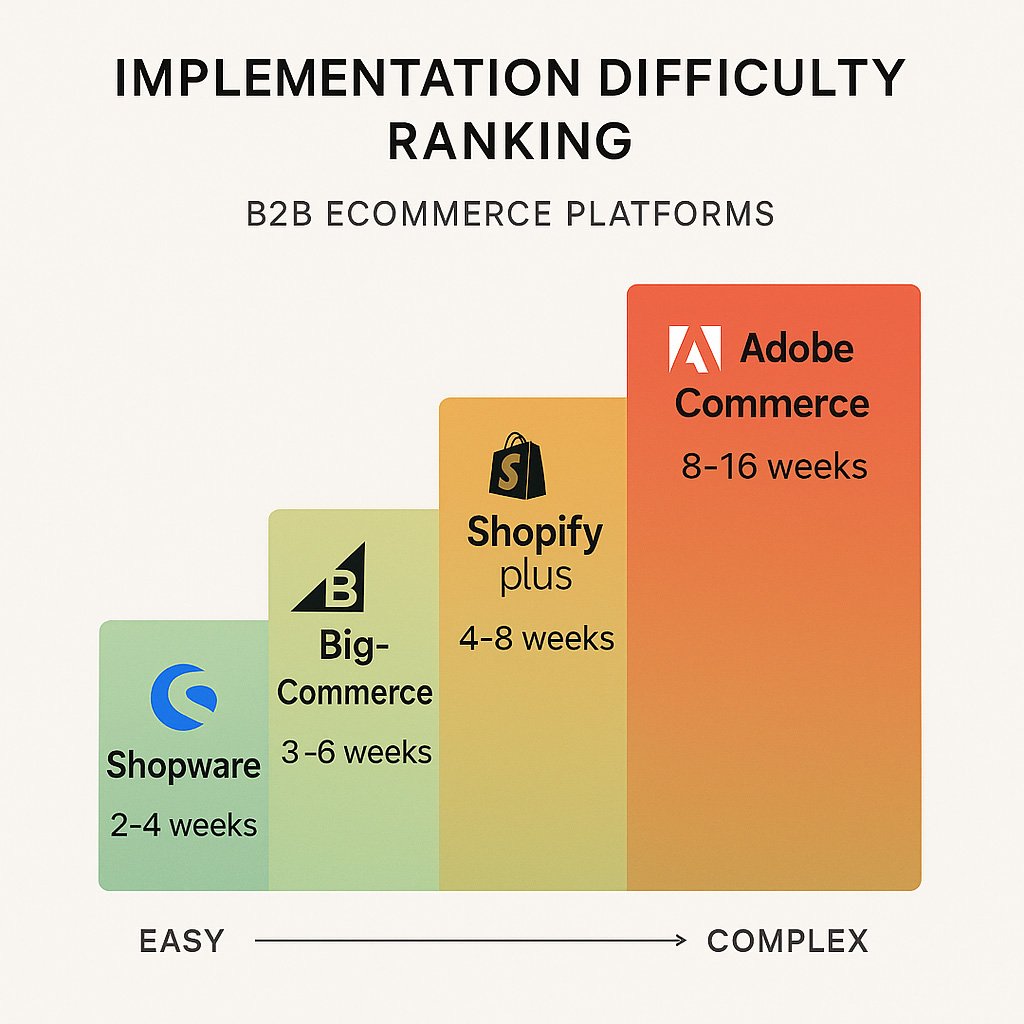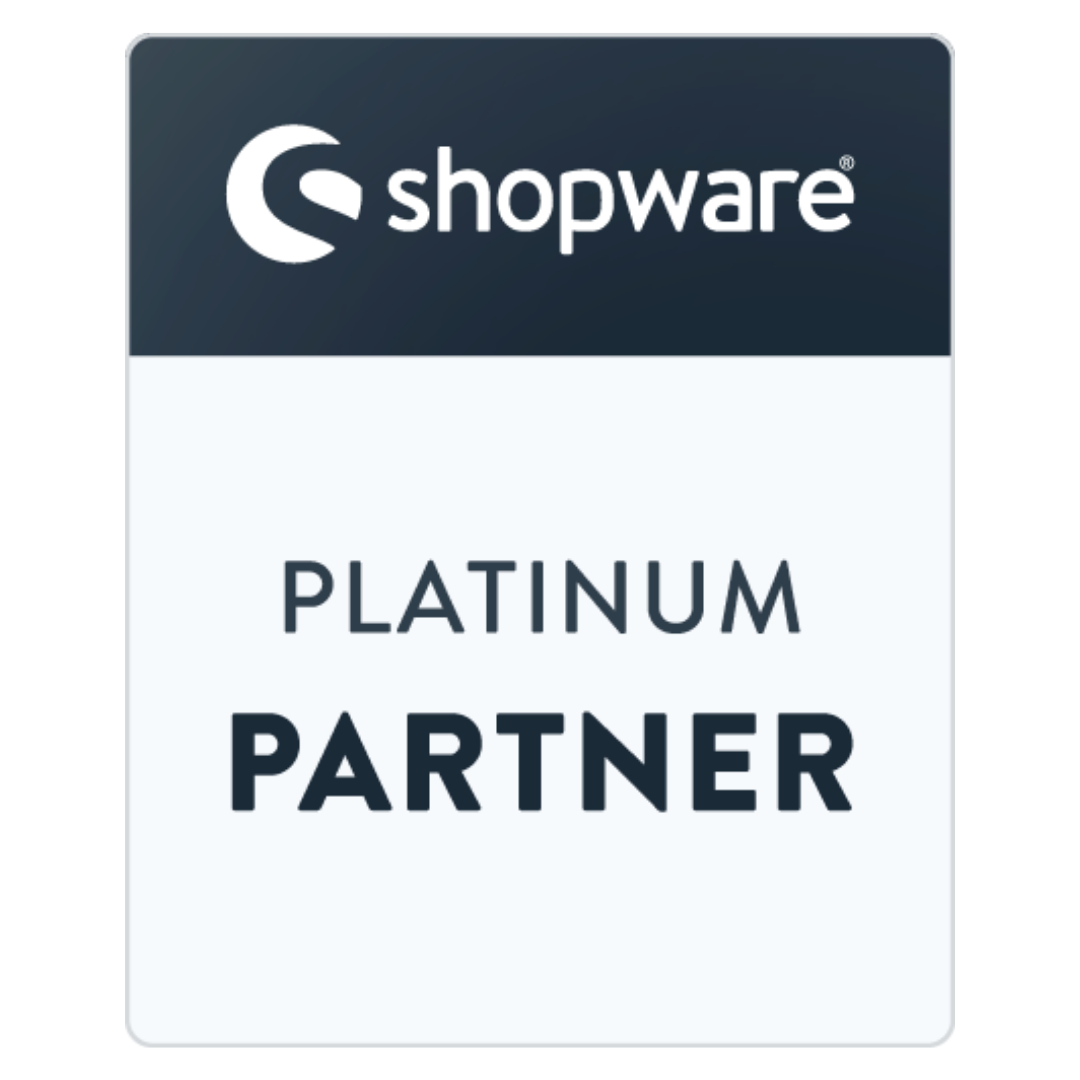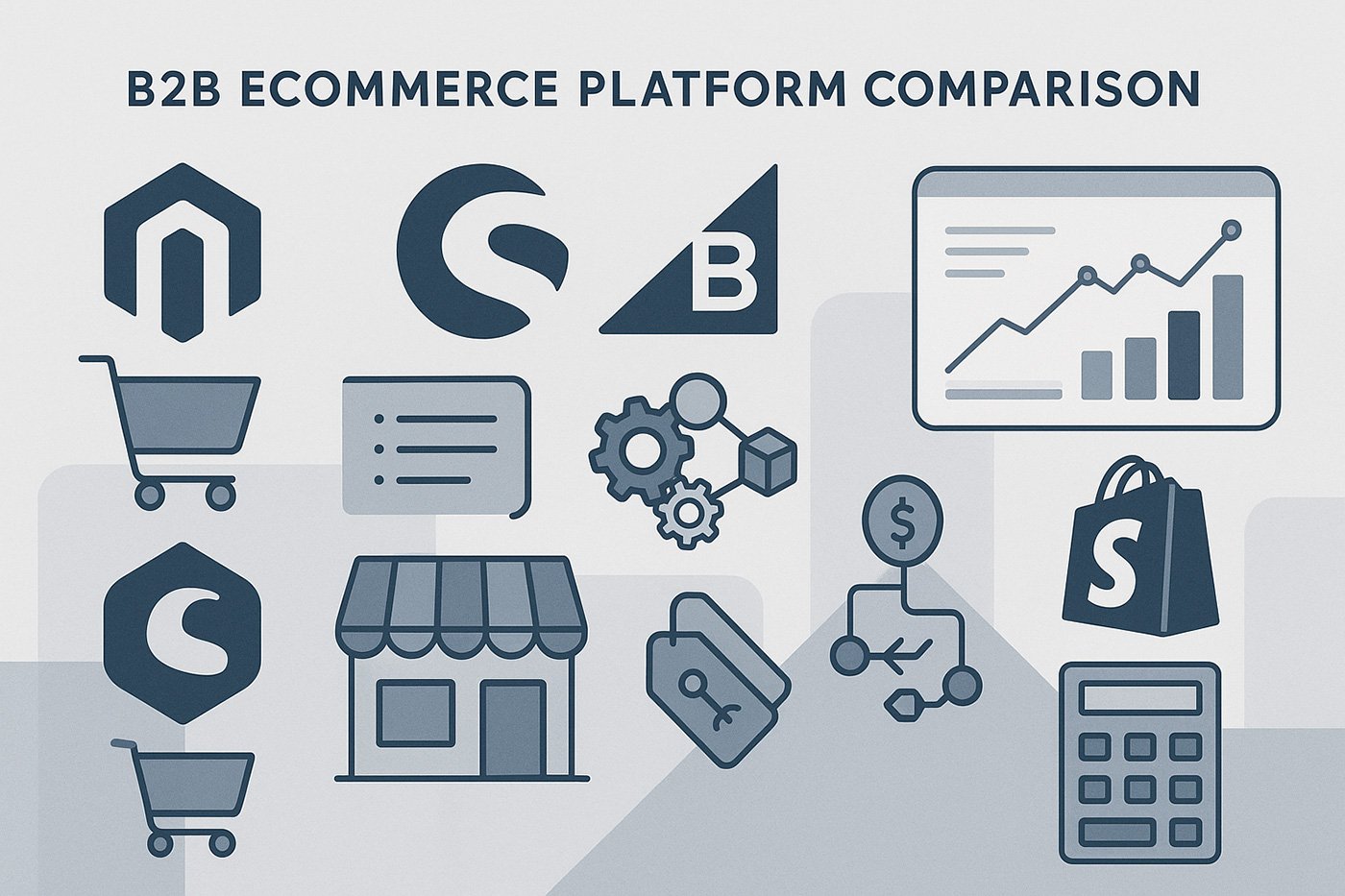B2B companies evaluating eCommerce platforms need decision-ready comparison data beyond generic features. With the B2B eCommerce market projected to reach $62.2 trillion by 2030¹, platform selection has a direct impact on growth and scalability.
This analysis examines top eCommerce platforms for B2B through real business requirements, including custom pricing, ERP integration, scalability metrics, and total cost of ownership. Discover which platforms deliver genuine B2B functionality versus those that are merely retrofitted B2C solutions.
Platform evaluation covers:
- B2B-specific features with custom pricing and account management
- Integration complexity for ERP, CRM, and PIM systems
- Implementation timelines and resource requirements
- Total cost of ownership with realistic B2B scenarios
Top eCommerce Platforms for B2B Comparison Matrix
| Platform | B2B-Specific Features | Integration Capabilities | Scalability Metrics | Total Cost of Ownership (Annual) |
|---|---|---|---|---|
| Adobe Commerce |
| Native ERP/CRM connectors, 300+ marketplace extensions | 200,000+ orders/hour, unlimited SKUs | $25,000 – $125,000+ (plus hosting) |
| Shopware |
| API-first, 1,200+ integrations, modular architecture | 4,000+ orders/minute, 140,000+ SKUs | $7,200 – $78,000 (includes hosting) |
| Big Commerce |
| Headless-ready APIs, unlimited API calls (Enterprise) | Multi-store support, 2,000 variants per request | $468 – $4,800+ (no transaction fees) |
| Shopify Plus |
| 8,000+ apps, strong API coverage | Nine expansion stores, thousands of orders/minute | $27,600+ (0.18% transaction fee) |
Advanced B2B eCommerce Feature Analysis
Custom Pricing and Account Management
Adobe Commerce leads with sophisticated company hierarchies, unlimited organizational levels, and complex RFQ processes that involve multi-round negotiations. Advanced features include company credit limits, shared catalogs, and requisition management².
Shopware delivers customer-specific pricing through rule-based engines, budget management with approval workflows, and dedicated sales representative portals for field teams, complete with performance tracking.
BigCommerce provides native customer groups and price lists, without the need for third-party apps. Multi-storefront management from unified backends enables separate brands while maintaining centralized inventory.
Shopify Plus offers B2B checkout processes and wholesale pricing, though advanced scenarios require app extensions. Excels in hybrid B2B/B2C models with flexible payment terms that include deposit and installment options.
Bulk Operations and Purchase Orders
All platforms handle bulk ordering, but implementation varies significantly. Adobe Commerce processes large volumes through requisition lists and CSV uploads with inventory validation. Shopware offers streamlined bulk operations with reorder functionality. BigCommerce provides native CSV import capabilities, while Shopify Plus relies on specialized apps.
Integration Complexity Assessment
Integration Implementation Difficulty Rankings

- Shopware – API-first architecture (2-4 weeks typical ERP integration)
- BigCommerce – REST APIs and webhooks (3-6 weeks)
- Shopify Plus – App ecosystem, but custom development often needed (4-8 weeks)
- Adobe Commerce – Comprehensive but complex options (8-16 weeks)
ERP and CRM Connectivity
Salesforce Integration: Adobe Commerce offers the deepest integration with bi-directional sync, while Shopify Plus provides the quickest setup through certified apps.
SAP Integration: Adobe Commerce provides robust SAP connectivity through native modules and certified connectors, handling complex data mapping and real-time synchronization. Shopware offers streamlined SAP integration via API connections, while BigCommerce and Shopify Plus typically require middleware solutions.
NetSuite Connectivity: All platforms support NetSuite integration, but approaches vary significantly. Shopify Plus offers native NetSuite apps with pre-built data flows. BigCommerce provides REST API connections with real-time inventory sync. Adobe Commerce delivers the most comprehensive NetSuite integration, including advanced workflow automation.
Microsoft Dynamics Integration: Shopware excels in Dynamics 365 connectivity through modular architecture and pre-built connectors. Adobe Commerce supports both Dynamics NAV and 365 with extensive customization options. BigCommerce offers marketplace apps for Dynamics integration, while Shopify Plus requires third-party solutions.
Oracle and Sage ERP: Adobe Commerce provides enterprise-grade connectors for Oracle ERP and Sage systems, supporting complex multi-entity scenarios. Shopware handles Oracle integration through an API-first approach with custom mapping capabilities. BigCommerce and Shopify Plus typically require specialized integration partners for Oracle and Sage connectivity.
Implementation Timeline and TCO Analysis
Resource Requirements by Platform
- Adobe Commerce: 6-12 months, requires senior developers and system integrators.
- Shopware: 6-12 weeks with PHP/Symfony developers.
- BigCommerce: 2-4 months with API specialists.
- Shopify Plus: 3-6 months with Liquid developers.
Three-Year TCO Scenarios
Mid-Market Manufacturer (1,000-5,000 orders/month):
- Adobe Commerce: $180,000-$300,000 (licensing, implementation, hosting, maintenance)
- Shopware: $85,000-$150,000 (hosting included)
- BigCommerce: $45,000-$85,000 (no transaction fees)
- Shopify Plus: $110,000-$180,000 (including transaction fees)
Enterprise Distributor (10,000+ orders/month):
Higher volumes shift cost equations. Adobe Commerce becomes cost-effective at enterprise scale, while Shopify Plus transaction fees can exceed $50,000 annually. Shopware provides predictable costs regardless of volume.
Atwix Platform Expertise
Atwix brings unmatched multi-platform expertise with proven B2B implementation success. Our authority stems from deep certifications and measurable client results.
Certifications and Partnerships
Adobe Commerce/Magento Leadership: Atwix maintains #1 Magento contributor status with 300+ expert certifications across the Adobe Commerce ecosystem³.
Shopware Excellence: Platinum Partner status provides direct access to the development roadmap and advanced training.



Client Success Examples
Byrne Electrical: Complete B2B portal transformation in 8 weeks during pandemic, enabling custom configurations and real-time ERP synchronization⁴.
PowerPak Achievement: Delivered 230% growth and 6% cost reduction within three months through strategic optimization⁵.
Reinders Project: The implementation of AI-powered search reduced product discovery time by 73% and increased the average order value by 45%.
Platform Selection Framework
Choose Adobe Commerce if you require:
- Complex multi-brand operations with extensive customization
- Deep enterprise system integration
- Proven scalability for high transaction volumes
Choose Shopware if you prioritize:
- Rapid implementation with comprehensive B2B features
- Transparent pricing with built-in AI capabilities
- Strong European market presence
Choose BigCommerce if you need:
- Native B2B functionality without transaction fees
- Multi-storefront management from a unified backend
- Predictable costs with unlimited API access
Choose Shopify Plus if you seek:
- Fastest time-to-market with an extensive app ecosystem
- Strong hybrid B2B/B2C capabilities
- Proven enterprise reliability
Conclusion
Platform selection requires analyzing business-specific requirements, integration complexity, and long-term costs. Each platform serves different segments: Adobe Commerce for enterprise complexity, Shopware for rapid deployment, BigCommerce for predictable costs, and Shopify Plus for speed-to-market.
Success depends on implementation expertise and strategic utilization. Consider proof-of-concept development, five-year cost modeling, and integration assessment specific to your technology stack.
Contact Atwix today to discuss your requirements and receive recommendations for the top eCommerce platforms for B2B.
Sources
- Atwix. B2B eCommerce in 2025: Platforms, Trends. https://www.atwix.com/ecommerce/b2b-ecommerce-all-you-need-to-know/
- On Tap Group. 10 best B2B eCommerce platforms in 2025. https://www.ontapgroup.com/blog/best-b2b-ecommerce-platforms
- First Page Sage. The Top B2B eCommerce Development Companies of 2025. https://firstpagesage.com/business/the-top-b2b-ecommerce-development-companies/
- Atwix Portfolio. Byrne Electrical Specialists Case Study. https://www.atwix.com/portfolio/byrne-electrical-specialists/
- Atwix Portfolio. PowerPak Implementation Results. https://www.atwix.com/portfolio/powerpak/
